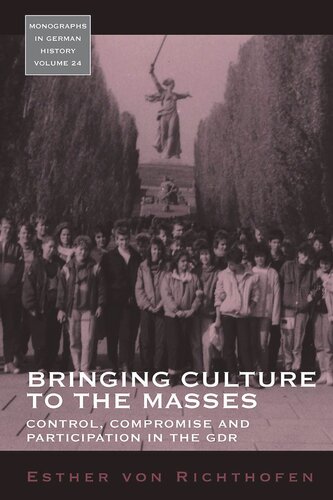

Most ebook files are in PDF format, so you can easily read them using various software such as Foxit Reader or directly on the Google Chrome browser.
Some ebook files are released by publishers in other formats such as .awz, .mobi, .epub, .fb2, etc. You may need to install specific software to read these formats on mobile/PC, such as Calibre.
Please read the tutorial at this link: https://ebookbell.com/faq
We offer FREE conversion to the popular formats you request; however, this may take some time. Therefore, right after payment, please email us, and we will try to provide the service as quickly as possible.
For some exceptional file formats or broken links (if any), please refrain from opening any disputes. Instead, email us first, and we will try to assist within a maximum of 6 hours.
EbookBell Team

4.4
42 reviewsCultural life in the former German Democratic Republic (GDR) was strictly controlled by the ruling party, the SED, who attempted to dictate how people spent their free time by prohibiting privately organized leisure time pursuits and offering instead cultural activities in state institutions and organizations. By exploring the nature of dictatorial rule in the GDR and analysing the population’s engagement with state-organized cultural activity, this book challenges the current assumptions about the GDR’s social and institutional history that ignore the interaction and inter-dependence between ‘rulers’ and ‘ruled’. The author argues that the people’s cultural life in the GDR developed a dynamic of its own; it was determined by their own interests and by the input of cultural functionaries, who often aimed to satisfy popular demands, even if they were at odds with the SED’s cultural policy. Gradually, these developments affected SED cultural policy, which in the 1960s became less focused on educationalist goals and increasingly oriented towards popular interests.